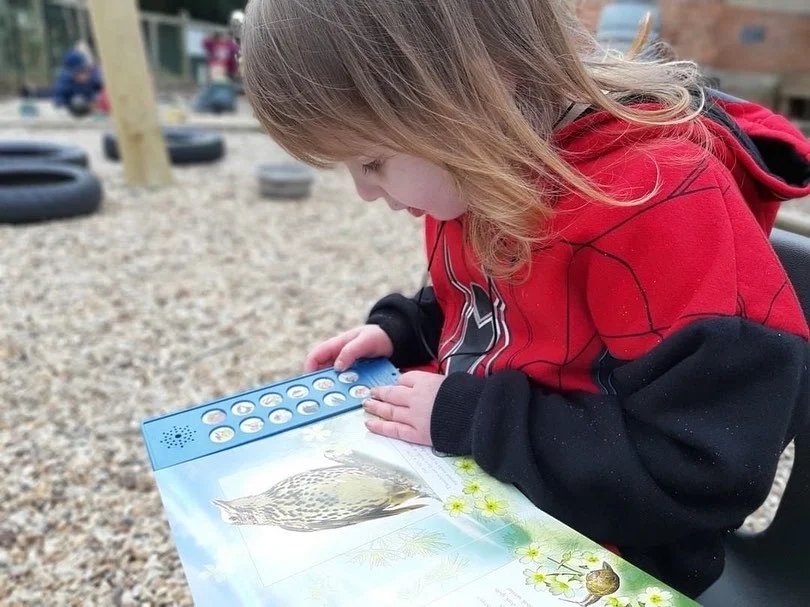It is that time of year when parents and children find out where their next adventure will take them. For nursery children, this is their first step into formal education, and for parents and children, it brings up some big questions and feelings.
For children, there may be worries about the unknown. For those without siblings, school has very little meaning. They may also be feeling the pressure of all of the talk about being a ‘big girl / boy’ and wondering what this really means. Can they still cry, have cuddles, feel vulnerable? For parents, there is perhaps fear over whether their child is ready for this next step. Do they know enough? Should they be writing their name? What if they are still struggling with using the toilet? Will someone give them a hug if they are sad? Do they know their numbers well enough?
Every child will enter their reception year with different experiences, knowledge, and interests. The teachers know this, and one of their skills during the first term is to help children to settle, identify the support they need, and help everyone to find their way.
So, do we need to prepare children for school? Yes, we should absolutely give this both time and thought. However, perhaps not in the traditional sense. It definitely isn’t the end of the world if your child doesn’t know how to write, or doesn’t know their letters yet. In the same way, just because they do know these things, it doesn’t mean the transition to school will be super easy.
The focus of our thoughts and time should be on how we support children to handle the feelings that starting school brings up. It should be on preparing them to be independent, resilient, and to really love learning. Here are some thoughts -
Independence - if children know how to choose an activity, start solving problems and manage their self-care, this is a really helpful start. This comes from small, everyday actions. It comes from empowering children to make choices (about what they wear, eat, and do, for example), from letting them help around the house (with dinner prep, for instance) and from always asking ourselves, “Could they do this for themselves? Am I stepping in too soon?”
Resilience to mistakes - learning to work things out, being creative, coming up with solutions, and knowing it is ok to get things wrong are key skills for life and education. This comes from seeing mistakes as ‘friendly’. When a child makes a mistake, we can either fix it for them (possibly leaving them feeling unempowered) or we can leave them to do it alone (possibly leaving them feeling unsupported). There is a third way - to support them in finding a solution for themselves - offering encouragement and asking questions to support their own thinking.
Love of learning - this comes from children being able to focus on the things they love. We don’t need to persuade them to sit down with us and do activities to get them ready for school (such as tracing letters, for example). We do need to allow them to develop ‘fascinated attention’ - to enjoy reading a book together, to pause and watch a bug crawling across the ground and then going to look up what bug they have found. When this happens, children learn to love learning, and they also develop concentration easily and naturally.
Feelings - whenever a major life transition happens, it’s important we provide emotional support to children to get through it. This is what makes the difference in terms of how they experience the world around them. Here are our top tips for supporting emotions when starting school -
Avoid talking about school constantly from April until September. 5 months is a long time in the life of a 3 or 4 year old. When it gets to June/July, do start walking past their new school, looking at pictures and talking about it. Ask the school if they have a booklet with pictures of the classroom, toilets, playground, lunch area, and teachers that you can look at with your child.
Make sure your child knows it is ok to be worried, and even a little scared. They will be feeling this whether you give voice to it or not, and once we give voice to big emotions, they become a lot less overwhelming.
Talk about the positives, and the challenges. There will be lots of exciting things, but there may also be some new challenges. It’s important for children to know they can feel both excited and nervous. Try asking them what they are excited and worried about to help them embrace the coming changes.
Don’t expect them to suddenly be the big girl or boy all the time. Sometimes children go through a bit of a regression in the run up to school or when starting school (especially if this coincides with having a new sibling or a young baby in the family). This can happen when they are feeling the pressure of being the big girl or boy all of a sudden.
Most of all, relax and enjoy your final few months together before school starts. It is all too easy to get caught up in the future, but one of the things we can do to support children’s well-being is to help them be grounded in the present moment. Enjoy books, walks, songs, cooking (even cleaning!) together, focus on the warmth of your parent-child connection and enjoy the journey. With these things in place, much of the preparation for school will take care of itself.

